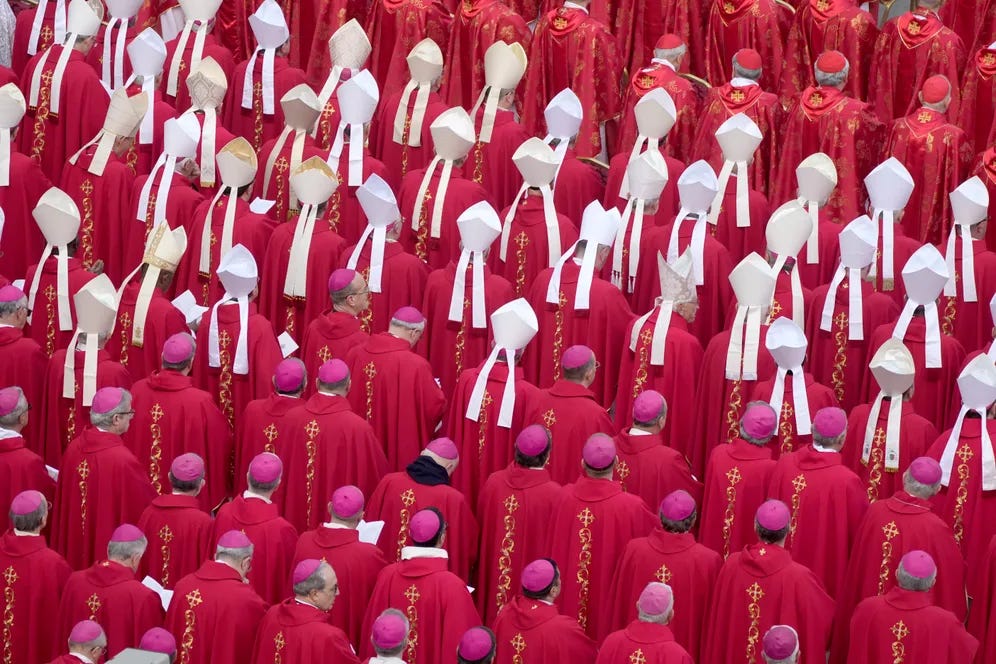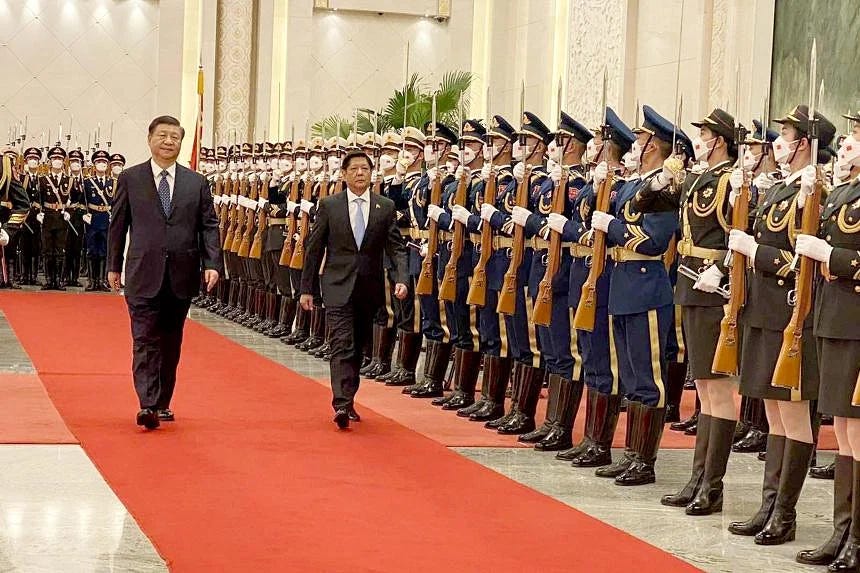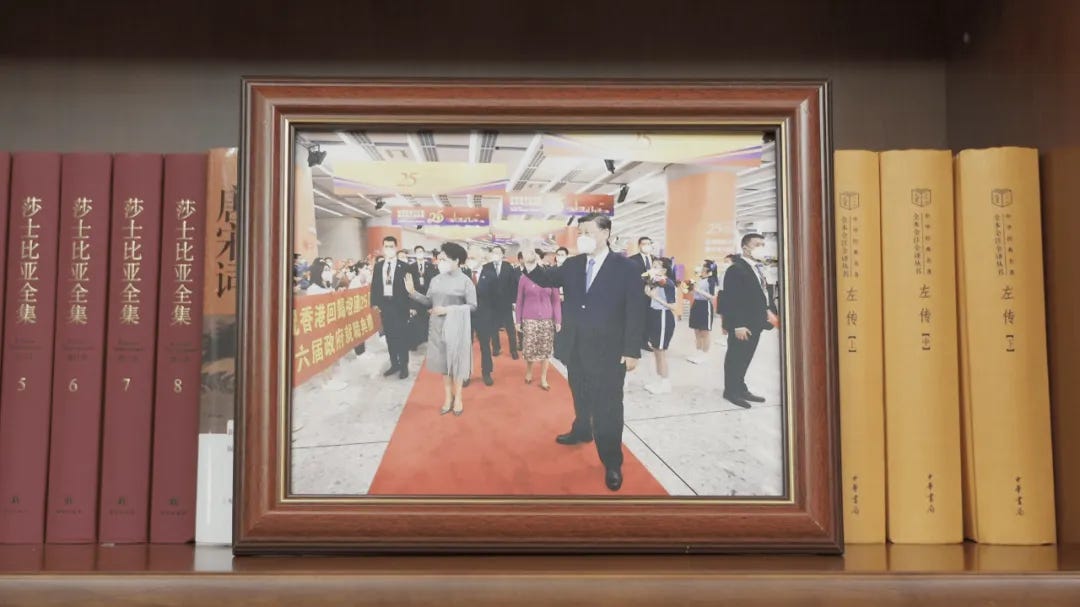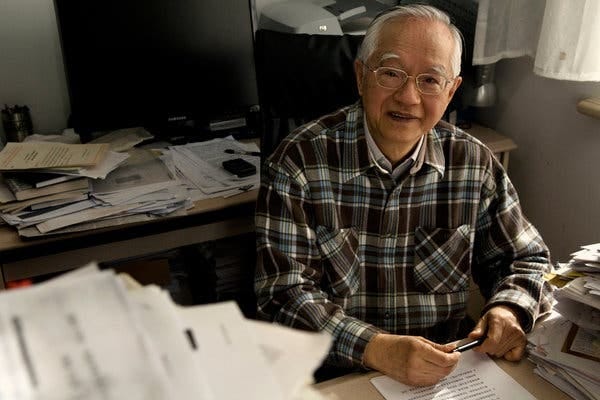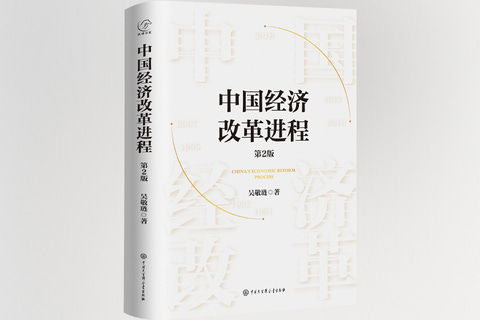Food for Thought 深思的食物
Vietnam regrets, Catholicism’s dark decay, Marcos returns to Beijing, US police violence rages, America's structural decline deepens, a bounty of books on Xi's shelf, and China's economic reforms
UPDATE: The long Mekong Weekend provides a kaleidoscope of articles and an eclectic list of book reviews for our readers to pass Cambodia’s victory weekend. First-up is Australia’s growing regret, as it seeks to foster cooperation, over the War on Vietnam. The uninspiring funeral of Pope Emeritus Benedict XVI - Joseph Ratzinger - exposes Catholicism’s dark decay. President Marcos met with President Xi Jinping and China’s top legislators and signed billions of Yuan of cooperative agreements, but Anglo-American media led with the South China Sea - stay tuned for the Code of Conduct making it to the final stage in 2023. In the US, police have killed more people in 2022, more than in living memory. It is no surprise therefore that deep structural decline in the US is also the subject of an article. Beijing Channel presents President Xi Jinping’s New Years address book shelf and a bounty of books and 2023 is no different, from Shakespeare to the Chronicle of Zuo and more. Finally, Pekingnology provides an interview with renowned Reform economist Wu Jinglian on China’s continuing economic reforms. 深思的食物 Food for thought for our Long Mekong Weekend readership - chew it over 咀嚼它 !
Ticking like a bomb
Two new books show what Australia’s involvement in the War on Vietnam left in its wake. As is often noted, Vietnam — a country that most Australian conscripts had never heard of before they were drafted — was the target of three times the tonnage of bombs dropped during the second world war. The exact figure varies, though not significantly, and the bombing was just a part of it. The land was heavily drenched and its people poisoned by the chemical defoliant Agent Orange.
Note, too, the word “conscript.” After Vietnam there were no more conscripts, and both the books, each in its way, tell us why. Though they come to the subject from different angles, reading them together is like entering a long-overdue discussion about an ugly yet largely forgotten war, the painful reverberations of which extend to this day.
Bronwyn Rennex is the daughter of a man she scarcely knew, a man who was sent to Vietnam in 1965 when she was only a year old. Fifteen when he died in 1980, she noted in her schoolgirl diary: “Everyones really upset. I was crying all night. He died of a heart attack about 1/4 past 12 last night.” Now a woman in her fifties, an artist, curator, former part-owner of a Sydney gallery, she documents her search for the cause of his death at fifty-two and her inability to reach him when he was alive.
Read the complete book reviews here.
Catholic Church in Crisis: Ratzinger's Dark Legacy
The flood of pilgrims that descended on Rome was biblical in magnitude. When the body of Pope John Paul II was carried into St. Peter’s Basilica in April 2005, tens of thousands of faithful took part in the funeral cortege. Many of them cried while others sang church songs, with applause breaking out over and over again. More than a million people paid their last respects to John Paul II as his body lay in state.
More recently, not even 200,000 believers passed by as the body of Pope Emeritus Benedict XVI – Joseph Ratzinger – lay in state. Only around 50,000 people came for his burial last Thursday. Interest in the event was also rather limited in Germany, even though Benedict was the first German leader of the Holy See in 482 years. To be sure, Benedict XVI was never even close to as popular as his predecessor. But his lack of charisma is only one reason for the comparative lack of interest, both in Germany and the rest of the Catholic world, in the deceased pope.
The rather limited outpouring of grief shows just how alien the Catholic Church has become to many people – and how advanced is its decay. In the public perception, Catholicism is no longer exclusively associated with integrity, decorum and equity, but with sexual assault committed against children and teenagers. Some Catholic parents hardly even dare tell people anymore when they send their children to communion. The image is that bad. In Germany, more than 2.5 million people have left the church since the 2010 abuse scandal was made public.
Read the full article here.
Red carpet welcome for Marcos and a slew of pacts struck in China
China rolled out the red carpet for Philippine President Ferdinand Marcos Jr on Wednesday with the signing of an agreement to mitigate rising tensions in the South China Sea and pledges to boost trade, investment, tourism, agricultural and clean energy cooperation.
Chinese President Xi Jinping told Mr Marcos during their talks at the Great Hall of the People in Beijing that China was “willing to continue friendly consultations to properly handle maritime problems”, according to Chinese state media.
An accord was inked to establish direct diplomatic communication to avoid miscalculation and miscommunication over the disputed territories in the South China Sea claimed by Manila as the West Philippine Sea.
Mr Xi also declared that “there is great potential for cooperation”, and offered to restart negotiations on joint oil and gas exploration in the South China Sea and cooperate in photovoltaic, wind energy and new energy vehicle projects.
Mr Marcos also raised with Mr Xi the plight of Filipino fishermen, who have been unable to fish in their natural fishing grounds in the disputed South China Sea, the President’s Office said. Both leaders agreed to seek a compromise that would be “beneficial” to the Filipino fisherfolk.
The Chinese President noted that Mr Marcos’ Jan 3-5 state visit is his first to China since assuming the presidency in June 2022 and his first to a non-Asean country, and that he is the first foreign leader hosted by China in 2023 – a testament to the closeness of bilateral relations.
Mr Xi recalled that Chairman Mao Zedong and Mr Marcos’ late father, who was the 10th president of the Philippines, jointly made the “historic” decision to establish diplomatic relations in June 1975 – one year after then First Lady Imelda Marcos’ landmark visit to China with Mr Marcos Jr, then 17.
No matter how Philippine politics changed in the ensuing years, the Marcos family pushed for friendly China-Philippine relations, Mr Xi said. “This friendship is precious,” he added.
Read the full article here.
Cooperation boosted with Philippines
Marcos' visit expression of sincerity and friendship between two nations. Beijing and Manila have reached a broad consensus on bilateral pragmatic cooperation and agreed to properly manage their differences on the South China Sea issue and resume talks about oil and gas explorations during the state visit by Philippine President Ferdinand Romualdez Marcos Jr to China from Tuesday to Thursday.
The reaffirmations come as a further boost to the pragmatic cooperation between the two nations.In a joint statement released on Thursday, the two nations stressed that maritime issues do not comprise the sum total of relations between the two countries and agreed to appropriately manage differences through peaceful means. The statement was released a day after talks between President Xi Jinping and Marcos at the Great Hall of the People, a meeting the two sides described as "friendly and productive" in the joint statement.
The three-day trip by Marcos marked the first visit by the Philippine leader to a non-ASEAN country since he took office in June 2022. Wu Jianghao, assistant minister of foreign affairs, said in an interview after the talks between the two leaders that both nations agreed to further bolster their comprehensive strategic cooperation and remain close neighbors, kin and partners.
The trip marked a new milestone in bilateral relations, he said. "It is also a trip that enhanced mutual trust," he said. As part of the broad confidence-building measures, the two sides decided to establish a direct communication mechanism between the departments of boundary and ocean affairs in their foreign ministries. The proper management of maritime issues would entail greater development of bilateral relations, Wu said. "We have full confidence in this regard," the assistant minister said. Both nations agreed to resume discussions on oil and gas development and strengthen maritime cooperation in areas such as environmental protection and the maritime economy.
Read the full article here.
US Police Killed Nearly 100 People a Month in 2022, Data Shows
A preliminary report finds police killed over 1,100 people last year, the most killings in any year in the past decade.Stunning new data shows that police across the U.S. killed 1,176 people in 2022, the highest number of police killings in a year since researchers began recording such data a decade ago.
According to Mapping Police Violence, there were only 12 days in 2022 when police didn’t kill someone. The majority of the killings took place in scenarios where no crime was alleged, or where police were called for things like nonviolent offenses or mental health checks. Only 31 percent of the people killed were in a situation where a violent crime had allegedly taken place, while 32 percent were killed while fleeing — situations in which police potentially put the public in danger while pursuing their victim.
In all, police killed over three people a day on average last year, adding up to nearly 100 people a month. These statistics are preliminary, as more killings from last year may still be recorded. So far, last year’s total is 31 more people than in 2021, when police killed 1,145 people. Since researchers began recording the data in 2013, police have always killed more than 1,000 people per year.
Police have relative impunity for these killings, the data shows; in 2013 and 2022, more than 98 percent of police killings did not result in an officer being charged with a crime, much less being convicted.
Black people were far more likely to be killed by police in 2022 than white people. Nearly 1 in 4 people that police killed in 2022 were Black, despite Black people making up only 13 percent of the U.S. population. Over the past decade, police have killed Black people at higher rates than white people in nearly every large city, the data shows.
Read full report here.
The Deep Structure of Democratic Crisis
The threat to American democracy springs, most fundamentally, from the social fragmentation wrought by a post-industrial economy. The United States faces a democratic crisis, as we have been told for several years now. But what exactly does this mean? On the anniversary of the January 6 attempted coup, the answer may seem obvious: the crisis is perhaps most dramatically seen in the transformation of the national Republican Party, which has abandoned a policy-making role for one that simply seeks power. To this end, it has become intent on exploiting vulnerable state-level institutions to suppress votes, gerrymander districts, and allow partisan actors to overturn the popular vote.
But to understand the threat of democratic backsliding in the United States, it is essential to untangle a variety of explanations of our contemporary crisis. These range from the most proximate to the more structural, and all are important. While most American analysts have focused on the former, however, we want to focus on the latter. We argue, in particular, that the economic transition from industrialism to post-industrialism may be less conducive to democracy, or at least provides an explanation for some important threats to democracy that we are witnessing today. Such a lens puts the analysis of the U.S. crisis in comparative perspective, allowing us to see some common threats across rich, historic democracies as well as the specific features that account for the extreme form it takes in our country.
To be sure, the sense of alarm is partly due to the specific behavior of a particular individual, Donald Trump, who entrepreneurially and through dint of personality mobilized a following and exploited openings in the U.S. party system. This explanation is emphasized in literature on the role of leadership and a tradition of analyzing the impact of the Metternichs and Bismarks as well as the Hitlers and Stalins of the world. Trump is a unique, norm-breaking, daring, and mobilizing figure with a particular psychology, which is certainly part of the picture. His ability to mobilize supporters—especially their animus and resentments—is, in one classic image, the narrow end of a causal funnel of explanation that goes from proximate factors to deeper and longer-term factors as it widens.
Read the full article here.
Books on Xi's shelf
The list covers history and the future, China and the world, technology and philosophy. There are plenty of sources that took a look at the pictures shown on his bookshelf, so to supplement them, this article focuses on what’s behind the pictures, the books.
Below is a list of all the books the author was able to make out from open-source photos. Unfortunately, some of the books are blocked by the frames, so it’s worth noting that this is an INCOMPLETE list of the books.
There are four bookshelf panels shown in the video, for clarity the list will follow the order of left to right, top to bottom.
【1】 《莎士比亚全集》The Full Works of Shakespeare
Publisher: Yilin Press
Xi has made numerous references to Shakespeare in his past speeches. He describedhis early encounter with Shakespeare in a 2015 speech in London.
I went to Northern Shaanxi from Beijing before I turned 16 to be a farmer, and spent 7 years of my youth there. During that time, I looked hard for works of Shakespeare.
我不到16岁就从北京来到了中国陕北的一个小村子当农民,在那里度过了7年青春时光。那个年代,我想方设法寻找莎士比亚的作品。”
In 2009, while attending the Frankfurt book fair with the German
Chancellor Angela Merkel as the Chinese vice president, Xi noted that thanks to the exchanges among various cultures, people from different countries could get to know Goethe, Shakespeare, and Confucius.
【2】 《唐宋词鉴赏辞典》 Appraisal Dictionary of Ci of the Tang and Song Dynasties
Press: Shanghai Lexicographical Publishing House
Ci is a traditional Chinese literary form like a poem but with verses of differing lengths. This literary form emerged in the Tang Dynasty and peaked in the Song.
【3】 《左传》 Chronicle of Zuo
Press: Zhonghua Book Company
The Chronicle of Zuo is a narrative history covering Chinese history from 722 B.C to 468 B.C. It’s considered a faithful record of history one of the most important classics of Chinese history.
In a speech at UNESCO headquarters in 2014, Xi made a reference to the work as he explained the traditional Chinese view on harmony and diversity.
The Chinese have long come to appreciate the wisdom of "harmony without uniformity". Zuo Qiuming, a Chinese historian who lived 2,500 years ago, recorded in the Chronicle of Zuo the following comments by Yan Ying, Prime Minister of the State of Qi during the Spring and Autumn Period: "Achieving harmony is like preparing the thick soup. Only with the right amount of water, fire, vinegar, meat sauce, salt and plum can fish and meat be cooked with the right taste." "It is the same when it comes to music. Only by combining the sounds of different instruments with the right rhythm and pitch as well as tone and style can you produce an excellent melody." "Who can eat the soup with nothing but water in it? What ear can tolerate the same tone repeatedly played on one instrument?"
中国人早就懂得了“和而不同”的道理。生活在2500年前的中国史学家左丘明在《左传》中记录了齐国上大夫晏子关于“和”的一段话:“和如羹焉,水、火、醯、醢、盐、梅,以烹鱼肉。”“声亦如味,一气,二体,三类,四物,五声,六律,七音,八风,九歌,以相成也。”“若以水济水,谁能食之?若琴瑟之专壹,谁能听之?”
Read the full article here.
Wu Jinglian, prominent pro-market economist, on China's economic reforms
What's the lesson for today from 40 years of reform? A contingent response to slowing growth is necessary but far from enough - only further reforms offer fundamental solutions. Wu Jinglian is one of China’s most prominent and influential pro-market economists. Recently, he wrote a preface to the second edition of《中国经济改革进程》China's Economic Reform Process published by the Encyclopedia of China Publishing House, where he reviewed not only the 40-plus years of reform but also its lessons for what China faces today.
The preface has been published in a number of outlets, including Caixin, where it is dated December 15, 2022. Below is a translation.
Preface to the Second Edition of China's Economic Reform Process
This book is a work first published in 2018 to commemorate the 40th anniversary of China's reform and opening up. Four years have passed, and many new phenomena have emerged in China's economy, especially in the past two years, when China's external environment has become more complex and uncertain. Domestic economic development is also facing many risks and challenges.
At present, China's economy has not yet come out of the 三期叠加 "three-phase superposition." That is, the 经济速度换档期 “transition period in respect of the growth rate,” the 经济调整阵痛期 “throes period for structural adjustment,” and the 前期刺激政策消化期 “digestion period for early-stage stimulus policies.” China is also facing the “triple pressures” of shrinking demand, disrupted supply, and weakening expectations. At a time when the government is taking a series of policy measures to "stabilize the base of the economy" and deal with the challenges, what is the significance of reprinting this book on the history of 40 years of reform and opening up?
Read the full interview here.





